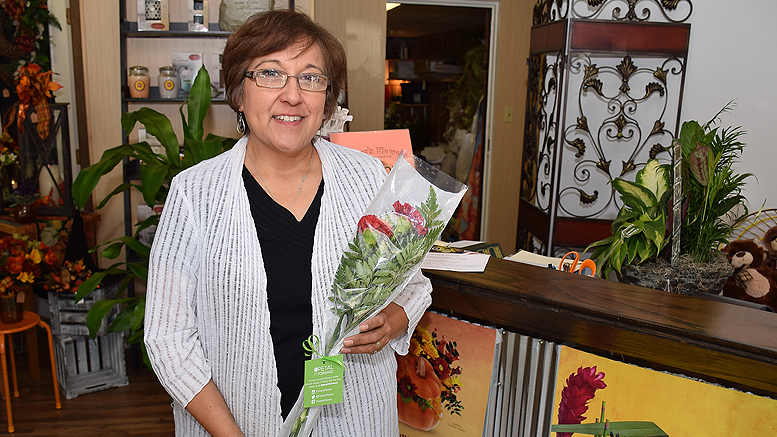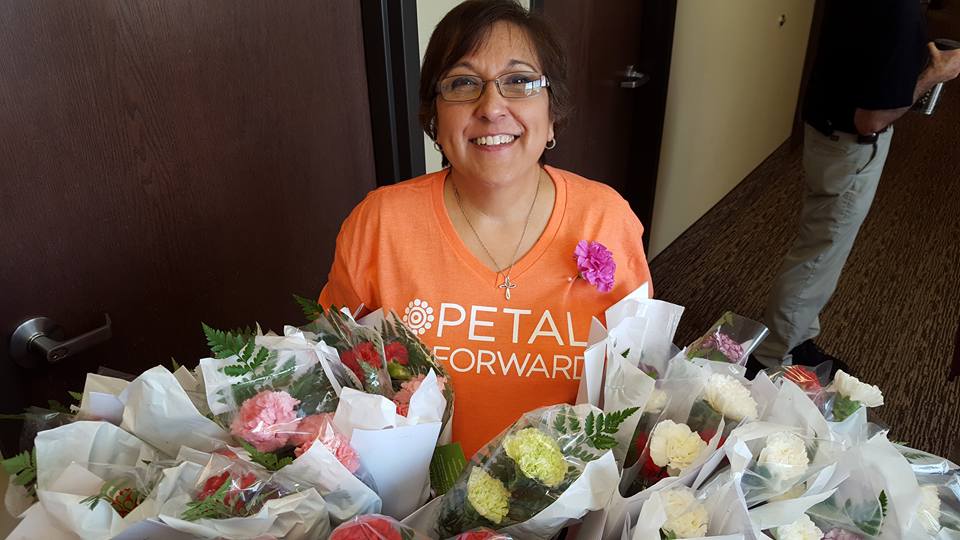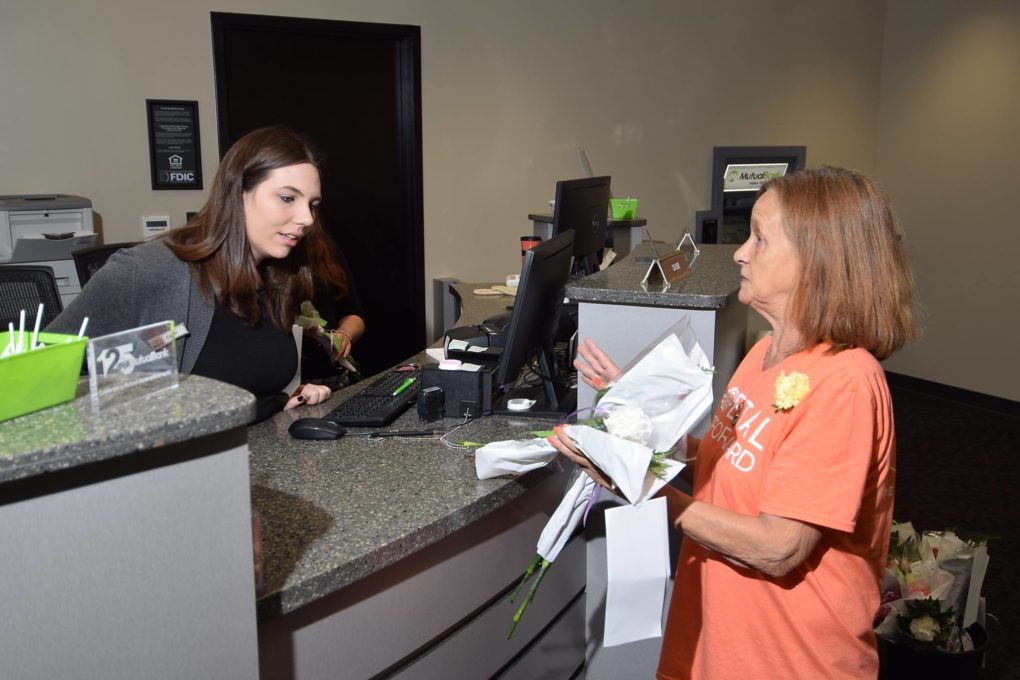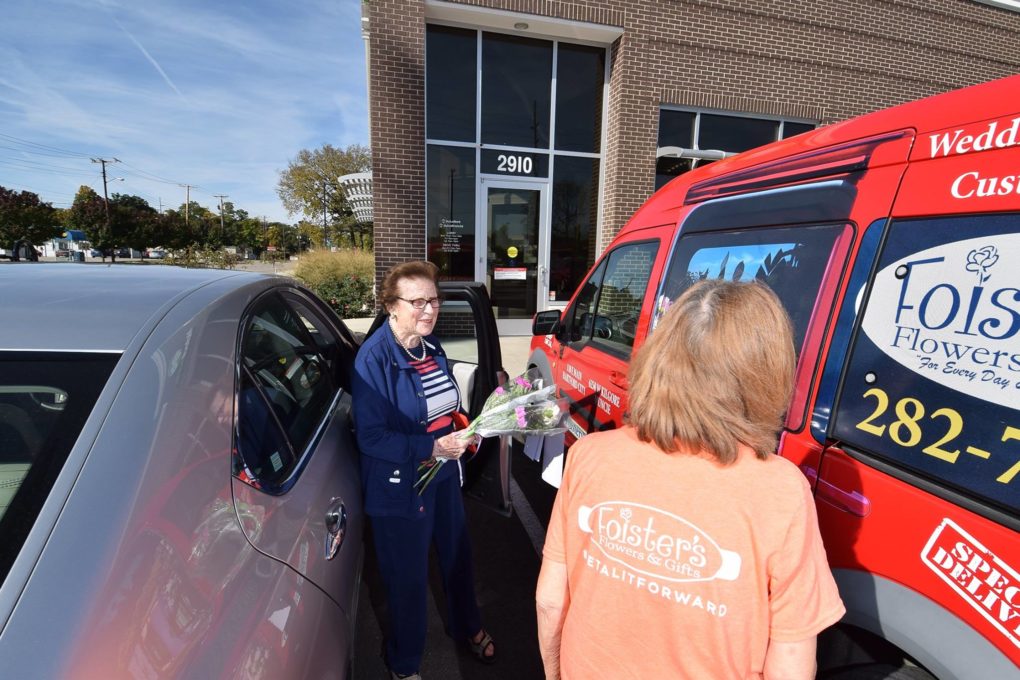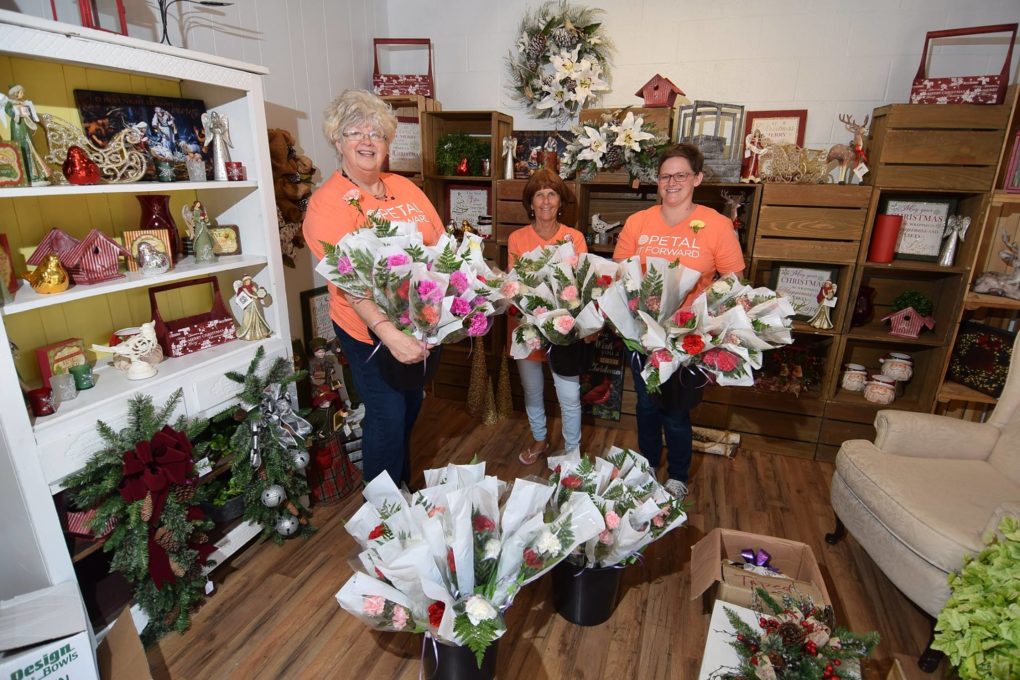By: Cameron Grubbs—
Muncie, IN —Foister’s Flowers and Gifts will be hitting the streets of Muncie and Yorktown on Wednesday, October 11, 2017 handing out 900 flowers to residents to help brighten up their week, as part of the Petal It Forward program, in partnership with the Society of American Florists (SAF), of which Foister’s Flowers & Gifts is a member. Foister’s will be participating in the Petal It Forward program for the second year in a row. Petal It Forward is in response to the release of data by SAF showing the positive emotional benefits of flowers. Each person will receive two bouquets—one to keep and one to share.
University research reveals that flowers have an immediate impact on happiness and a long-term positive effect on moods. Now, a survey has found that, when it comes to flowers, it’s just as good to give as it is to receive. With this data in mind, the Petal It Forward team is not only spreading happiness to lucky Muncie and Yorktown residents who receive the flowers, but arming recipients with the tools they need to Petal It Forward and spread happiness to others: An extra flower bouquet to share with a loved one, coworker or a stranger.
“We see the positive impact day in and day out when we make our flower deliveries,” said Sharon Grubbs, owner of Foister’s Flowers & Gifts. “People love flowers ‘just because’ so we want to create random smiles, and give people a chance to do the same for someone else.”
SAF conducted a survey of 2,500 people throughout the U.S. to uncover the impact of flowers on Americans. The results revealed the many benefits of flowers, including the positive impact flowers have on one’s emotions and happiness, and backed up previous research studies on flowers conducted by Rutgers, Harvard and Texas A&M. (See www.aboutflowers.com/research for more information on the university studies.)
The following are highlights from SAF’s recent survey results:
- When it comes to happiness, it’s just as good to give flowers as it is to receive: 88 percent of Americans report that giving flowers makes them feel happy, while 80 percent reported that receiving flowers makes them feel happy.
- Just being around flowers improves your mood: 76 percent of Americans agree that having flowers in their home or office improves their mood.
- The best reason to receive flowers is “just because”: Women (92 percent) are more likely to agree with this, but the majority of men (three in four) also share this sentiment.
- Florists to the rescue! Nearly four in 10 Americans indicate florists have helped them in a past or current relationship; most frequently to say “I love you,” or schedule a surprise delivery.
“The impact of giving or receiving flowers is powerful and memorable,” said Grubbs. “It can turn an ordinary day into an extraordinary one.”
Grubbs and the Petal It Forward Team will give away a total of 900 bouquets at their shop and at other remote locations in Muncie and Yorktown during the morning and afternoon. After receiving their flowers, recipients are asked to spread the happiness by gifting their extra flower bouquet, and sharing their happiness on social media using #petalitforward.
For more information on the benefits of flowers, visit www.aboutflowers.com and www.aboutflowersblog.com.
Photos by: Mike Rhodes
Foister’s Flowers & Gifts
Located at 6250 W. Kilgore in Muncie, Foister’s Flowers has been serving Muncie and Delaware County since 1990. A full service retail florist and gift shop with same day delivery, a large variety of fresh flowers, plants, and numerous gift items.
About the Society of American Florists
The Society of American Florists is the national trade association to the floral industry, representing growers, wholesalers, retailers, suppliers, importers, educators, designers and allied organizations. The association was chartered by an act of Congress in 1884.
About the Society of American Florists’ Survey:
The omnibus survey was conducted using the field services of TNS among a representative sample of 2,500 Americans, ages 18 and older. The margin of error for total Americans is plus or minus 1.9 percent. If the study was to be replicated, findings would not vary by more than 1.9 percentage points in either direction 95 times out of 100.

